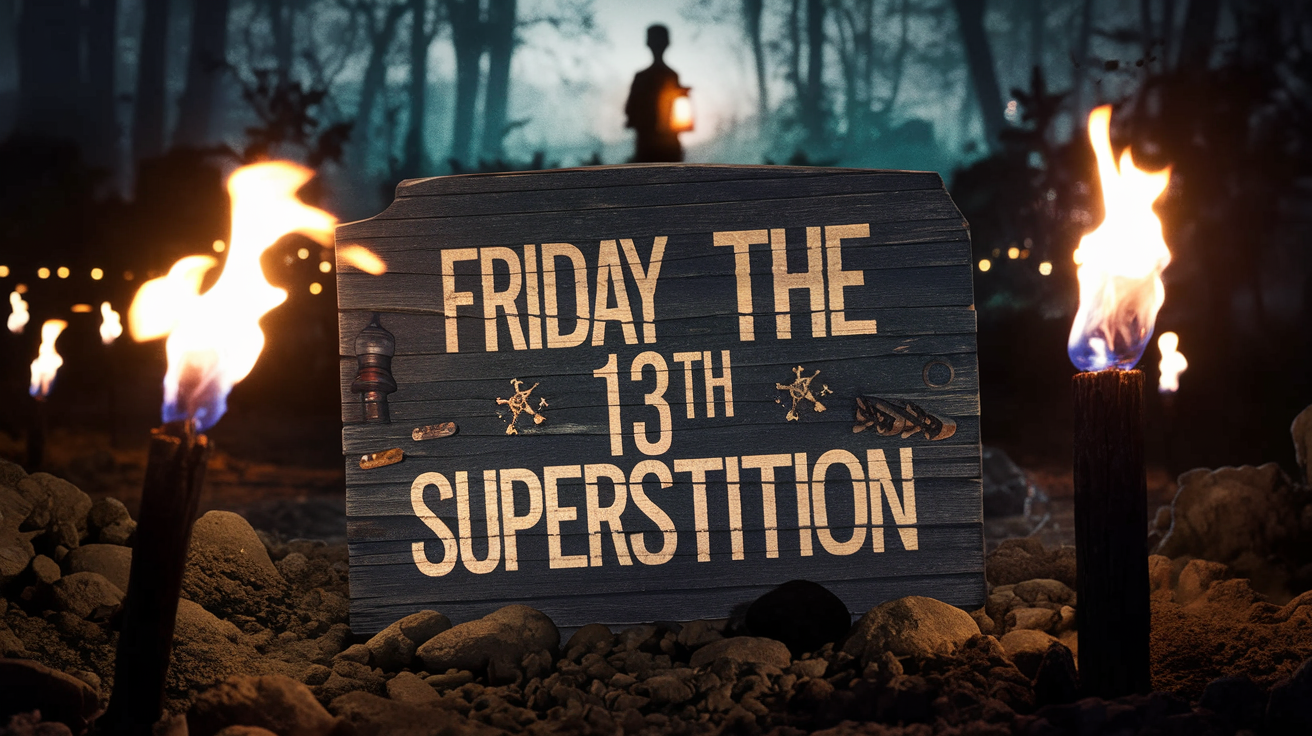Friday the 13th Superstition: Complete Guide

Table of Contents
1. Introduction to Friday the 13th Superstition
Friday the 13th is widely regarded as a day of bad luck in many Western cultures. It combines two elements traditionally associated with misfortune—Friday and the number 13—resulting in a day that some people believe brings an increased risk of unfortunate events.
2. Origin of Friday the 13th Superstition
The superstition surrounding Friday the 13th is relatively modern but draws from much older beliefs about both Fridays and the number 13. While there is no definitive starting point, the combination of these two elements over centuries has fueled the notion of this day being unlucky.
3. Cultural Significance of Friday the 13th
In various cultures, Friday the 13th holds significant meaning. Some view it as a superstitious day where one should take precautions to avoid bad luck. In contrast, others treat it simply as another day on the calendar, dismissing the fears as outdated.
4. Why is Friday the 13th Considered Unlucky?
Friday has long been considered an unlucky day in many cultures due to several factors, including religious events and historical significance. Similarly, the number 13 is seen as unlucky because it disrupts the traditional view of 12 as a “complete” number (12 months, 12 apostles, etc.).
When combined, these two beliefs form the core of the Friday the 13th superstition. The day is thought to increase the likelihood of misfortune or disaster, although this is largely based on psychological factors rather than any real evidence.
5. Historical Events on Friday the 13th
Several notable disasters and tragedies have occurred on Friday the 13th, further contributing to the belief in its bad luck:
- Friday, October 13, 1307: The arrest and subsequent persecution of the Knights Templar by King Philip IV of France.
- Friday, November 13, 1970: A devastating cyclone in Bangladesh killed over 300,000 people.
- These events are often cited as proof that Friday the 13th is cursed, though they are more coincidental than causative.
6. Religious Ties to the Friday the 13th Superstition
In Christianity, Friday is traditionally considered unlucky because it is believed that Jesus was crucified on a Friday. Additionally, there were 13 people present at the Last Supper, further associating the number with bad luck.
These religious associations helped build the narrative that Friday the 13th is particularly cursed, even though this belief is not universally held across all denominations or faiths.
7. Friday the 13th in Popular Culture
The superstition has been immortalized in popular culture, particularly through the horror movie franchise “Friday the 13th”. This series, which began in 1980, focuses on the character Jason Voorhees and his gruesome acts, contributing to the day’s modern association with fear and misfortune.
The films have given Friday the 13th a more prominent place in pop culture, especially in the horror genre, solidifying its connection with bad luck and danger.
8. Psychological Effects: Fear of Friday the 13th (Paraskevidekatriaphobia)
Paraskevidekatriaphobia is the term used to describe the irrational fear of Friday the 13th. Many people genuinely experience anxiety, stress, and dread on this day, avoiding travel, important decisions, or major life events. The superstition feeds into this phobia, reinforcing negative perceptions of the day.
9. Famous Friday the 13th Incidents
Several famous incidents are often associated with Friday the 13th, some of which include:
- The crash of Uruguayan Air Force Flight 571 on Friday, October 13, 1972.
- The “Black Friday” stock market crash in 1989.
While these events were tragic, they occurred on various Friday the 13ths, further deepening the belief in the day’s supposed bad luck.
10. How is Friday the 13th Viewed Around the World?
Beliefs about Friday the 13th vary across the globe. While it’s considered unlucky in countries like the U.S., U.K., and Canada, other cultures have different unlucky days. For instance, in some Spanish-speaking countries, Tuesday the 13th is considered unlucky instead.
11. Myths and Facts About Friday the 13th
Myths:
- If you fly on Friday the 13th, your chances of an accident are higher.
- Bad things always happen on Friday the 13th.
Facts:
- There is no statistical evidence that more accidents or unfortunate events happen on this day.
- The belief is largely psychological, with fear influencing perception.
12. How to Avoid Bad Luck on Friday the 13th?
Superstitious individuals often take extra precautions on Friday the 13th to avoid bad luck. These measures might include:
- Avoiding travel or important decisions.
- Carrying lucky charms or avoiding actions that are believed to bring bad luck, like walking under ladders or crossing paths with a black cat.
13. Conclusion: Understanding Friday the 13th Superstition
The superstition around Friday the 13th stems from a blend of historical, cultural, and psychological factors. While many view it as a day to be cautious, there is no concrete evidence supporting the belief that it is more dangerous than any other day. However, its lasting influence in popular culture and the collective psyche continues to make it a notable date on the calendar.
Read more Topics: Click Here
This content Research by : Branding Ninja

